
Sir Alfred Jules "Freddie" Ayer, usually cited as A. J. Ayer, was an English philosopher known for his promotion of logical positivism, particularly in his books Language, Truth, and Logic (1936) and The Problem of Knowledge (1956).

Robert Nozick was an American philosopher. He held the Joseph Pellegrino University Professorship at Harvard University, and was president of the American Philosophical Association. He is best known for his books Philosophical Explanations (1981), which included his counterfactual theory of knowledge, and Anarchy, State, and Utopia (1974), a libertarian answer to John Rawls' A Theory of Justice (1971), in which Nozick also presented his own theory of utopia as one in which people can freely choose the rules of the society they enter into. His other work involved ethics, decision theory, philosophy of mind, metaphysics and epistemology. His final work before his death, Invariances (2001), introduced his theory of evolutionary cosmology, by which he argues invariances, and hence objectivity itself, emerged through evolution across possible worlds.
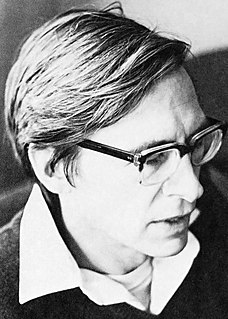
John Bordley Rawls was an American moral and political philosopher in the liberal tradition. Rawls received both the Schock Prize for Logic and Philosophy and the National Humanities Medal in 1999, the latter presented by President Bill Clinton, in recognition of how Rawls' work "helped a whole generation of learned Americans revive their faith in democracy itself."

John Leslie Mackie was an Australian philosopher. He made significant contributions to the philosophy of religion, metaphysics, and the philosophy of language, and is perhaps best known for his views on metaethics, especially his defence of moral scepticism. He wrote six books. His most widely known, Ethics: Inventing Right and Wrong (1977), opens by boldly stating, "There are no objective values." It goes on to argue that because of this ethics must be invented rather than discovered. He posthumously published The Miracle of Theism: Arguments For and Against the Existence of God (1983), which has been called "atour de force" in contemporary analytic philosophy. Many considered Mackie one of the best defenders of philosophical atheism. In the 1980s, Time magazine called him the "ablest of today's atheistic philosophers", and he regularly debated Christian philosophers such as Richard Swinburne and Alvin Plantinga.

A Theory of Justice is a 1971 work of political philosophy and ethics by the philosopher John Rawls, in which the author attempts to provide a moral theory alternative to utilitarianism and that addresses the problem of distributive justice. The theory uses an updated form of Kantian philosophy and a variant form of conventional social contract theory. Rawls's theory of justice is fully a political theory of justice as opposed to other forms of justice discussed in other disciplines and contexts.

Ted Honderich is a Canadian-born British professor of philosophy, who was Grote Professor Emeritus of the Philosophy of Mind and Logic, University College London.
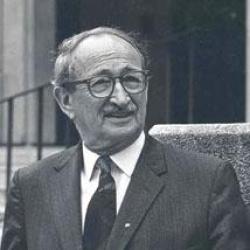
Sidney Hook was an American philosopher of the pragmatist school known for his contributions to the philosophy of history, the philosophy of education, political theory, and ethics. After embracing communism in his youth, Hook was later known for his criticisms of totalitarianism, both fascism and Marxism–Leninism. A pragmatic social democrat, Hook sometimes cooperated with conservatives, particularly in opposing Marxism–Leninism. After World War II, he argued that members of such groups as the Communist Party USA and Leninists like democratic centralists could ethically be barred from holding the offices of public trust because they called for the violent overthrow of democratic governments.
Prometheus Books is a publishing company founded in August 1969 by the philosopher Paul Kurtz. The publisher's name was derived from Prometheus, the Titan from Greek mythology who stole fire from Zeus and gave it to man. This act is often used as a metaphor for bringing knowledge or enlightenment.
"Instrumental" and "value rationality" are terms scholars use to identify two ways humans reason when coordinating group behaviour to maintain social life. Instrumental rationality recognizes means that "work" efficiently to achieve ends. Value rationality recognizes ends that are "right," legitimate in themselves.
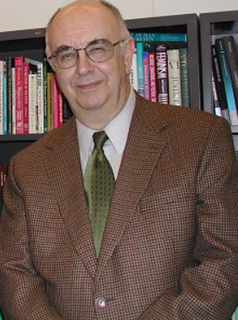
James Webster Rachels was an American philosopher who specialized in ethics and animal rights.

Philosophical Explanations is a 1981 metaphysical, epistemological, and ethical treatise by the philosopher Robert Nozick.

For a New Liberty: The Libertarian Manifesto is a book by American economist and historian Murray Rothbard, in which the author promotes anarcho-capitalism. The work has been credited as an influence on modern libertarian thought and on part of the New Right.

Denise A. Spellberg is an American scholar of Islamic history. She is professor of history and Middle Eastern Studies at the University of Texas at Austin. Spellberg holds an A.B. in History from Smith College (1980) and an M.A., M. Phil., and a PhD (1989) in Middle Eastern History from Columbia University.
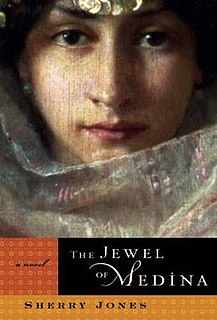
The Jewel of Medina is a historical novel by Sherry Jones that recounts the life of Aisha, one of Muhammad's wives, from the age of six, when she was betrothed to Muhammad, to her death.

Anita LaFrance Allen is the Henry R. Silverman Professor of Law and professor of philosophy at the University of Pennsylvania Law School. She is also Vice Provost for Faculty. She has been a senior fellow in the former bioethics department of the University of Pennsylvania Perelman School of Medicine, a collaborating faculty member in Africana Studies, and an affiliated faculty member in the gender, sexuality and women's studies program. She has been elected to the National Academy of Medicine, the American Law Institute, and the American Academy of Arts and Sciences. She served as President of the Eastern Division of the American Philosophical Association in 2018–19. In 2010 President Barack Obama named Allen to the Presidential Commission for the Study of Bioethical Issues. She is a Hastings Center Fellow.
In philosophy, objectivity is the concept of truth independent from individual subjectivity. A proposition is considered to have objective truth when its truth conditions are met without bias caused by a sentient subject. Scientific objectivity refers to the ability to judge without partiality or external influence. Objectivity in the moral framework calls for moral codes to be assessed based on the well-being of the people in the society that follow it. Moral objectivity also calls for moral codes to be compared to one another through a set of universal facts and not through Subjectivity.

Carlin Romano is an American writer and educator. Romano writes for The Chronicle of Higher Education.
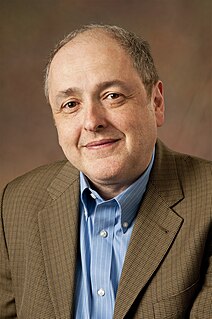
Brian Leiter is an American philosopher and legal scholar who is Karl N. Llewellyn Professor of Jurisprudence at the University of Chicago Law School and founder and Director of Chicago's Center for Law, Philosophy & Human Values. A review in Notre Dame Philosophical Reviews described Leiter as "one of the most influential legal philosophers of our time", while a review in The Journal of Nietzsche Studies described Leiter's book Nietzsche on Morality (2002) as "arguably the most important book on Nietzsche's philosophy in the past twenty years."
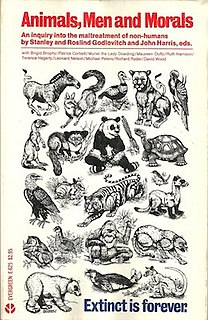
Animals, Men and Morals: An Inquiry into the Maltreatment of Non-humans (1971) is a collection of essays on animal rights, edited by Oxford philosophers Stanley and Roslind Godlovitch, both from Canada, and John Harris from the UK. The editors were members of the Oxford Group, a group of postgraduate philosophy students and others based at the University of Oxford from 1968, who began raising the idea of animal rights in seminars and campaigning locally against factory farming and otter hunting.

Analytical Marxism is an approach to Marxist theory that was prominent amongst English-speaking philosophers and social scientists during the 1980s. It was mainly associated with the September Group of academics, so called because of their biennial September meetings to discuss common interests. Described by G. A. Cohen as "non-bullshit Marxism", the group was characterized, in the words of David Miller, by "clear and rigorous thinking about questions that are usually blanketed by ideological fog." Members of this school seek to apply the techniques of analytic philosophy, along with tools of modern social science such as rational choice theory, to the elucidation of the theories of Karl Marx and his successors.

















